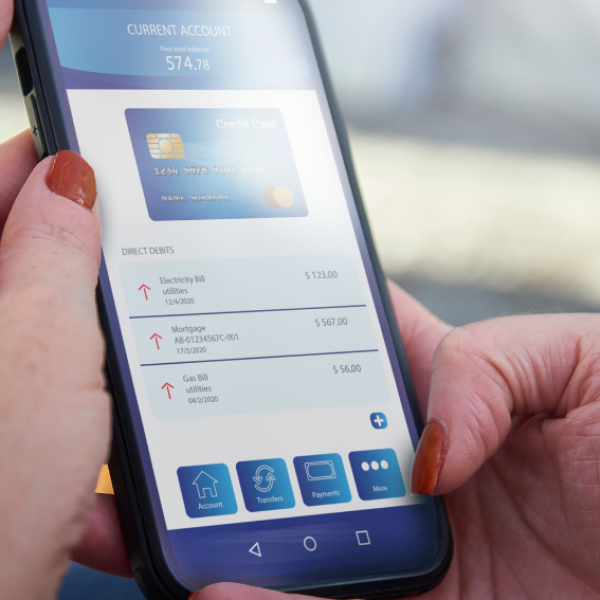As businesses expand into international markets, managing payments in multiple currencies becomes a critical operational challenge. Multi-currency merchant accounts offer a solution, allowing businesses to accept and process payments in various currencies while minimizing conversion costs and enhancing customer satisfaction.
This article explores the benefits of multi-currency merchant accounts, the key features to look for, and reviews of the top providers to help businesses choose the right solution for their needs.
In This Article
ToggleWhy Multi-Currency Merchant Accounts Are Essential

In an increasingly globalized economy, businesses operating across borders face unique challenges when managing payments in different currencies. Traditional payment systems often lead to high conversion fees, delays, and operational inefficiencies, which can hinder growth and profitability. Multi-currency merchant accounts address these issues by simplifying international transactions, improving customer experience, and streamlining financial management.
1. Reduced Currency Conversion Costs
One of the most significant advantages of multi-currency merchant accounts is the ability to accept and hold payments in various currencies without immediate conversion.
For Businesses:
With traditional systems, payments are often converted into the merchant’s home currency at unfavorable exchange rates, incurring hidden fees. Multi-currency accounts allow businesses to retain funds in the original currency, offering the flexibility to convert at more favorable rates. This results in significant cost savings, particularly for businesses dealing with high transaction volumes.
For Customers:
Customers are often charged additional fees when paying in a foreign currency. A multi-currency account allows them to transact in their local currency, eliminating these extra costs and enhancing satisfaction.
Example:
A European customer purchasing from a US-based e-commerce store can pay in Euros instead of Dollars, avoiding conversion fees and providing a seamless checkout experience.
2. Enhanced Customer Experience
Customers prefer to transact in their local currency for clarity and convenience. Offering this option is not just a technical upgrade but a critical step toward building trust and loyalty.
Reduced Cart Abandonment:
In e-commerce, hidden currency conversion fees or unfamiliar pricing can deter customers from completing their purchase. Providing local currency options helps reduce this friction.
Improved Transparency:
Customers appreciate seeing prices in their native currency, which aligns with their expectations and avoids confusion.
Global Customer Appeal:
By catering to international payment preferences, businesses can attract and retain a more diverse customer base.
Example:
A retailer operating in Asia and Europe can display product prices in local currencies such as Yen or Euros, boosting trust and conversion rates.
3. Simplified Financial Management
Managing payments in multiple currencies can be a logistical nightmare without the right tools. Multi-currency merchant accounts consolidate these funds into a single platform, offering businesses a clear view of their financial landscape.
Streamlined Accounting:
Instead of juggling multiple accounts for each currency, businesses can manage all transactions through one interface. This simplifies bookkeeping and reduces the likelihood of errors.
Improved Cash Flow Management:
Multi-currency accounts enable businesses to monitor and forecast cash flow more accurately, ensuring they have the liquidity needed to meet obligations in various markets.
Efficient Reconciliation:
With all currency data in one place, reconciling transactions becomes faster and less error-prone.
Example:
A global consultancy firm managing projects in USD, GBP, and AUD can view and manage all transactions in a unified dashboard, saving time and reducing administrative complexity.
4. Competitive Edge
In competitive international markets, offering multi-currency payment options sets businesses apart. It signals a commitment to accommodating global customers and understanding their needs.
Broader Customer Appeal:
Customers are more likely to choose businesses that offer convenient payment options tailored to their preferences.
Improved Market Reach:
By simplifying transactions, businesses can expand into new markets more confidently, knowing they can handle the payment complexities that come with them.
Better Partner Relations:
Multi-currency accounts can also facilitate smoother transactions with international suppliers and partners, enhancing operational efficiency.
Example:
A subscription-based service offering local currency billing attracts more international subscribers by removing barriers like conversion fees and currency confusion.
Key Features to Look for in Multi-Currency Merchant Accounts
Selecting the right multi-currency merchant account is critical to maximizing the benefits outlined above. Here are the essential features to prioritize:
1. Supported Currencies
A robust multi-currency account should support the currencies of your target markets. The more currencies the provider offers, the greater your ability to cater to diverse customer bases.
Consideration for Expansion:
Even if your current operations are limited to a few regions, choosing a provider with extensive currency options prepares your business for future growth.
Example:
A merchant planning to expand into Southeast Asia should ensure the provider supports currencies like SGD (Singapore Dollar), MYR (Malaysian Ringgit), and THB (Thai Baht).
2. Competitive Exchange Rates
Transparent and competitive exchange rates are essential to avoid losing profits to hidden markups. Some providers charge inflated rates, significantly affecting margins for businesses with high transaction volumes.
What to Look For:
Providers that offer real-time exchange rates with minimal or no markups.
Example:
A provider offering real-time currency conversion aligned with mid-market rates ensures the best value for both merchants and customers.
3. Integration Capabilities
Your multi-currency merchant account should integrate seamlessly with your existing systems to ensure smooth operations.
Payment Gateways:
Ensure compatibility with popular gateways like Stripe or PayPal.
E-Commerce Platforms:
Integration with platforms like Shopify, WooCommerce, or Magento simplifies transaction management.
Accounting Tools:
Compatibility with accounting software like QuickBooks or Xero streamlines financial reporting and tax compliance.
Example:
A merchant using Shopify for e-commerce and QuickBooks for accounting benefits from a provider that integrates seamlessly with both.
4. Low Fees
While multi-currency accounts offer significant advantages, costs can vary widely among providers. Evaluate the fee structure to ensure it aligns with your budget.
Fees to Consider:
– Transaction fees: Charges per sale.
– Currency conversion fees: Costs for exchanging funds.
– Monthly maintenance fees: Fixed charges for account management.
Example:
A provider with flat transaction fees and no hidden charges ensures predictable costs for better financial planning.
5. Compliance and Security
Multi-currency transactions involve sensitive customer data and are subject to various regulatory requirements. Choose a provider with robust compliance and security measures.
Regulatory Standards:
Providers must adhere to PCI DSS (Payment Card Industry Data Security Standard) and AML (Anti-Money Laundering) regulations.
Fraud Prevention:
Advanced tools like two-factor authentication, transaction monitoring, and fraud detection algorithms enhance security.
Example:
A PCI-compliant provider ensures customer data is protected during international transactions.
6. Customer Support
Responsive customer support is crucial for addressing technical or operational issues, especially when dealing with international transactions that involve different time zones.
Key Considerations:
– 24/7 availability to resolve urgent issues.
– Multilingual support for global operations.
Example:
A provider offering round-the-clock support ensures uninterrupted operations, even during peak times.
Top Multi-Currency Merchant Account Providers

Expanding into international markets requires businesses to manage transactions in multiple currencies effectively. Multi-currency merchant accounts simplify this process by offering tools and features tailored to global operations. Below is an in-depth look at some of the best providers, each designed to address specific needs and challenges of international businesses.
1. Airwallex
Airwallex is a leading multi-currency payment solution designed specifically for businesses with a global footprint. By supporting over 34 currencies and enabling transactions in more than 130 countries, it provides unmatched flexibility for cross-border trade.
Key Features:
- Competitive Exchange Rates: Airwallex offers some of the most competitive exchange rates with no hidden markups, making it ideal for businesses seeking cost-effective solutions.
- Virtual Multi-Currency Wallets: Businesses can hold, manage, and transfer funds in multiple currencies without immediate conversion, reducing unnecessary fees.
- Seamless Integrations: Airwallex integrates with major e-commerce platforms like Shopify and accounting tools such as Xero, ensuring streamlined operations.
Best For:
Small to medium-sized businesses looking for affordable and transparent multi-currency solutions.
Why Choose Airwallex?
Airwallex stands out for its user-friendly interface, extensive global reach, and ability to handle international transactions at minimal cost. Its robust features make it a favorite among businesses with moderate to high transaction volumes.
Example:
A mid-sized export company using Airwallex can manage payments in local currencies from European and Asian markets, saving on conversion fees and improving cash flow.
2. Wise Business
Wise Business (formerly TransferWise) is renowned for its transparency, low fees, and simplicity. It caters to freelancers, startups, and small businesses with frequent international transactions.
Key Features:
- Real Exchange Rates: Unlike traditional providers, Wise Business uses real-time mid-market rates without hidden markups, providing significant savings.
- Multi-Currency Management: Businesses can hold and manage funds in over 50 currencies, offering unparalleled flexibility.
- Integration-Friendly: Wise integrates with platforms like Shopify for e-commerce and Xero for accounting, ensuring efficient financial management.
Best For:
Freelancers, startups, and small businesses that require cost-effective and straightforward multi-currency solutions.
Why Choose Wise Business?
Wise Business is ideal for businesses with lean budgets. Its transparent pricing model and intuitive platform make international transactions seamless and affordable.
Example:
A freelance graphic designer working with clients in the US, UK, and Australia can use Wise to receive payments in USD, GBP, and AUD, avoiding costly bank transfers.
3. Payoneer
Payoneer is a versatile multi-currency payment platform that excels in e-commerce, freelancing, and marketplace transactions. Its global reach and advanced tools make it a go-to option for businesses handling diverse customer bases.
Key Features:
- Global Payment Solutions: Supports payments in over 150 currencies, allowing businesses to accept and manage international funds effortlessly.
- Marketplace Integration: Works seamlessly with platforms like Amazon, Upwork, and Fiverr, enabling businesses to streamline marketplace transactions.
- Advanced Reporting: Offers robust financial management tools, including detailed reporting and analytics, to help businesses track performance.
Best For:
E-commerce businesses and freelancers working with a broad range of international clients.
Why Choose Payoneer?
Payoneer’s ability to integrate with marketplaces and its broad currency support make it a strong choice for businesses managing payments across multiple channels.
Example:
An e-commerce seller operating on Amazon’s global marketplace can use Payoneer to collect payments in local currencies and withdraw funds to their home account at favorable rates.
4. PayPal Multi-Currency
PayPal is a household name in online payments, and its multi-currency solutions make it a reliable option for businesses of all sizes. Its global reputation and comprehensive features ensure trust and convenience.
Key Features:
- Wide Currency Acceptance: Accept payments in over 25 currencies, catering to a broad international customer base.
- Simple Integration: PayPal integrates with most online stores and e-commerce platforms, offering an easy setup process.
- Fraud Prevention: Built-in tools help protect merchants and customers from fraudulent activities.
Best For:
Established businesses looking for a globally recognized and user-friendly payment solution.
Why Choose PayPal?
PayPal’s brand recognition enhances customer trust, making it a preferred choice for businesses aiming to build credibility while managing international payments.
Example:
A subscription-based business offering digital services globally can use PayPal to process recurring payments in local currencies, ensuring consistent customer satisfaction.
5. Stripe
Stripe is a highly flexible and developer-friendly payment processor that supports multi-currency transactions. Its advanced features make it a top choice for businesses requiring customization and scalability.
Key Features:
- Extensive Currency Support: Stripe allows businesses to accept payments in over 135 currencies and various payment methods, including credit cards and digital wallets.
- Dynamic Currency Conversion: Automatically converts currencies during transactions, enhancing the customer experience.
- Developer-Friendly APIs: Customizable APIs enable businesses to build tailored payment solutions.
Best For:
Tech-savvy businesses and developers seeking advanced customization and scalability.
Why Choose Stripe?
Stripe’s robust APIs and advanced tools make it ideal for businesses that want to tailor their payment processes to meet unique operational needs.
Example:
A SaaS company serving clients worldwide can use Stripe’s API to integrate a multi-currency subscription model, improving global accessibility and revenue streams.
6. PaymentCloud
PaymentCloud specializes in serving high-risk industries, providing tailored multi-currency solutions for businesses with unique challenges. Its expertise ensures reliable and secure payment processing.
Key Features:
- High-Risk Industry Support: PaymentCloud works with merchants in high-risk industries like travel, subscription services, and gaming.
- Flexible Integration: Compatible with various e-commerce platforms, enabling seamless payment management.
- Chargeback Mitigation Tools: Proactive measures help reduce financial risks associated with disputes.
Best For:
High-risk businesses needing customized and secure multi-currency payment solutions.
Why Choose PaymentCloud?
PaymentCloud’s focus on high-risk industries and specialized support ensures smooth operations for businesses facing regulatory and operational complexities.
Example:
A travel agency offering international vacation packages can use PaymentCloud to manage transactions in multiple currencies while mitigating chargeback risks.
How to Choose the Right Multi-Currency Merchant Account
1. Evaluate Your Business Needs
Determine your transaction volume, target currencies, and integration requirements to narrow down your options.
2. Compare Costs
Examine fee structures, including transaction fees, exchange rates, and additional charges. Avoid providers with hidden costs.
3. Assess Customer Support
Ensure the provider offers responsive support in your operating hours and preferred language.
4. Test Integration
Check for compatibility with your existing platforms and software to avoid operational disruptions.
5. Read Reviews
Research customer feedback to gauge the provider’s reliability, transparency, and ease of use.
Benefits of Multi-Currency Merchant Accounts

Multi-currency merchant accounts empower businesses to operate efficiently in international markets. Here are some key benefits:
- Improved Customer Experience: Offering local currency options builds trust and reduces friction at checkout.
- Cost Savings: Transparent exchange rates and reduced conversion fees increase profitability.
- Streamlined Operations: Centralized management of multiple currencies simplifies financial processes.
- Global Reach: Businesses can expand into new markets with confidence, knowing they have robust payment support.
Conclusion
Multi-currency merchant accounts are indispensable for businesses aiming to thrive in the global marketplace. Providers like Airwallex, Wise Business, Payoneer, PayPal, Stripe, and PaymentCloud cater to diverse business needs, offering features like competitive rates, seamless integrations, and robust customer support. By understanding your business requirements and evaluating providers carefully, you can choose the best multi-currency solution to streamline operations, enhance customer satisfaction, and boost profitability.
Frequently Asked Questions
What is a multi-currency merchant account?
A multi-currency merchant account allows businesses to accept, hold, and process payments in various currencies. It helps reduce conversion fees, enhances customer experience, and simplifies international transactions.
Which businesses benefit most from multi-currency merchant accounts?
Businesses operating internationally, such as e-commerce stores, travel agencies, and freelancers, benefit significantly. These accounts simplify cross-border payments and improve customer satisfaction.
How do I choose the best multi-currency merchant account provider?
Evaluate factors like supported currencies, exchange rates, integration capabilities, fees, compliance, and customer support to find a provider that suits your business needs.










